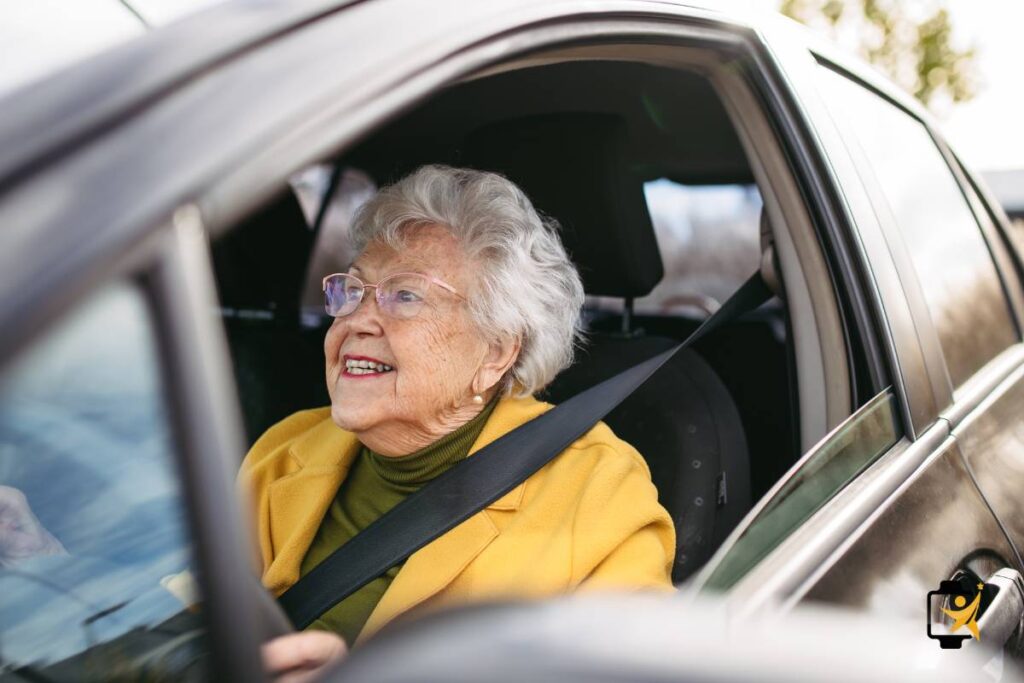As people age, their physical and cognitive abilities may decline, which can affect their driving skills. This is why many countries have laws that require elderly drivers to renew their licenses more frequently or undergo retesting to ensure they are still capable of driving safely.
Retesting elderly drivers is necessary for several reasons. For one, older adults are more likely to experience changes in their vision, hearing, and reflexes, which can affect their ability to react quickly to unexpected situations on the road. Many older adults take medications that can cause drowsiness, dizziness, or other side effects that can impair their driving abilities.
Cognitive decline is a common issue among older adults, and it can affect their ability to make quick decisions, process information, and react to changing situations. This can be especially dangerous when driving, as split-second decisions can mean the difference between a safe journey and a serious accident.
Retesting elderly drivers can help ensure that they are still capable of driving safely and reduce the risk of accidents on the road. It can also allow older adults to identify any issues that may be affecting their driving abilities and take steps to address them, such as getting a new pair of glasses or adjusting their medication regimen.
Current Retesting Policies for Elderly Drivers
As the population ages, there is increasing concern about the safety of elderly drivers. While many older drivers are safe on the road, some may experience declines in vision, hearing, motor skills, and cognitive function that can impair their ability to drive safely. To address these concerns, many countries and states have implemented retesting policies for elderly drivers.
Age Thresholds for Retesting
The age at which drivers are required to undergo retesting varies by region. In the United States, for example, there is no federal requirement for elderly drivers to be retested. Some states have implemented their own policies. In California, for instance, drivers over the age of 70 are required to take a written test when renewing their license, and drivers over 75 must take a written driving test. In contrast, in the United Kingdom, drivers over the age of 70 must renew their license every three years and provide a medical report from their doctor.
Frequency of Retests
The frequency of retesting also varies by region. In some places, elderly drivers are required to undergo retesting every few years, while in others, they only need to be retested when they renew their license. In California, for example, drivers over the age of 75 must be retested every five years. In contrast, in Japan, drivers over the age of 75 must be retested every three years.
Differences by Region
Retesting policies also vary by region in terms of the type of test that is required. In some places, elderly drivers must take a written test, while in others, they must take a driving test. In some cases, a medical examination may also be required. For example, in Ontario, Canada, drivers over the age of 80 must take a vision test and a knowledge test, and may also be required to take a road test and a medical examination.
Benefits of Retesting Elderly Drivers
Retesting elderly drivers has several benefits that can improve road safety and enhance the mobility and independence of senior citizens.
Road Safety Improvements
As people age, their vision, hearing, reflexes, and cognitive abilities tend to decline. These changes can affect their driving skills and increase the risk of accidents. Retesting elderly drivers can help identify those who are no longer capable of driving safely and prevent them from causing accidents on the road.
According to a study by the Insurance Institute for Highway Safety, states with mandatory license renewal requirements for older drivers had fewer fatal crashes involving drivers aged 70 and older than states without such requirements.
Enhanced Mobility and Independence
For many elderly people, driving is an essential part of their daily lives. It allows them to maintain their independence, stay socially connected, and access medical care, groceries, and other necessities.
Retesting elderly drivers can help ensure that those who are still capable of driving safely can continue to do so, while those who are not can find alternative transportation options. This can help maintain the mobility and independence of senior citizens and prevent social isolation.
Reinforcement of Safe Driving Practices
Retesting elderly drivers can also reinforce safe driving practices and help seniors stay up-to-date with changes in traffic laws and regulations.
It can also provide an opportunity for seniors to receive feedback on their driving skills and learn about ways to improve their driving performance. This can help promote safer driving habits among elderly drivers and reduce the risk of accidents on the road.
Challenges and Concerns
One of the main concerns with retesting elderly drivers is that it may be perceived as age discrimination. Many elderly drivers may feel that they are being unfairly targeted due to their age, and may resist being retested. This perception can be exacerbated if the retesting process is not clearly communicated to drivers, or if it is not conducted in a fair and unbiased manner.
To address these concerns, it is important to ensure that the retesting process is clearly outlined and communicated to all drivers, regardless of age. The retesting process should be conducted in a fair and unbiased manner, with no preference given to drivers of any particular age group.
Accessibility of Retesting Facilities
Another challenge with retesting elderly drivers is ensuring that retesting facilities are accessible to all drivers, particularly those who may have mobility issues or who live in rural areas. If retesting facilities are not easily accessible, some elderly drivers may be unable or unwilling to participate in the retesting process.
To address this challenge, it may be necessary to establish additional retesting facilities in areas where they are currently lacking. Efforts should be made to ensure that all retesting facilities are fully accessible to drivers with mobility issues.
Emotional and Psychological Impact on Drivers
Retesting can be a stressful and emotional experience for drivers of any age, but it may be particularly challenging for elderly drivers who have been driving for many years and may feel that their independence is being threatened. Some elderly drivers may also be dealing with age-related health issues, which can further exacerbate the emotional impact of retesting.
To address these concerns, it is important to ensure that the retesting process is conducted in a sensitive and supportive manner. Drivers should be provided with clear information about the retesting process and what to expect and should be given ample opportunity to ask questions and voice their concerns.
Drivers should be provided with resources and support to help them cope with any emotional or psychological challenges that may arise as a result of the retesting process.
Alternatives to Retesting
While retesting elderly drivers may seem like a logical solution to ensure road safety, other alternatives could be explored.
Regular Health Assessments
One alternative to retesting elderly drivers is to require regular health assessments. As people age, their physical and mental abilities decline, which can affect their driving skills. By requiring regular health assessments, elderly drivers can be screened for any medical conditions or medications that may impair their driving abilities.
Regular health assessments can help identify any vision or hearing problems that may affect a driver’s ability to see or hear properly while on the road.
Adaptive Technologies
Another alternative to retesting elderly drivers is to encourage the use of adaptive technologies. Adaptive technologies can help elderly drivers compensate for any physical or cognitive impairments that may affect their driving abilities.
For example, if an elderly driver has trouble turning their head to check blind spots, they could use a blind spot monitoring system. If an elderly driver has trouble remembering directions, they could use a GPS navigation system. By using adaptive technologies, elderly drivers can continue to drive safely and independently.
Public Transportation Incentives
Finally, another alternative to retesting elderly drivers is to provide incentives for using public transportation. For some elderly drivers, giving up their car and their independence can be a difficult decision.
By providing incentives such as reduced fares or free rides, elderly drivers may be more willing to use public transportation. This can not only help keep them safe on the road but also reduce traffic congestion and air pollution.





